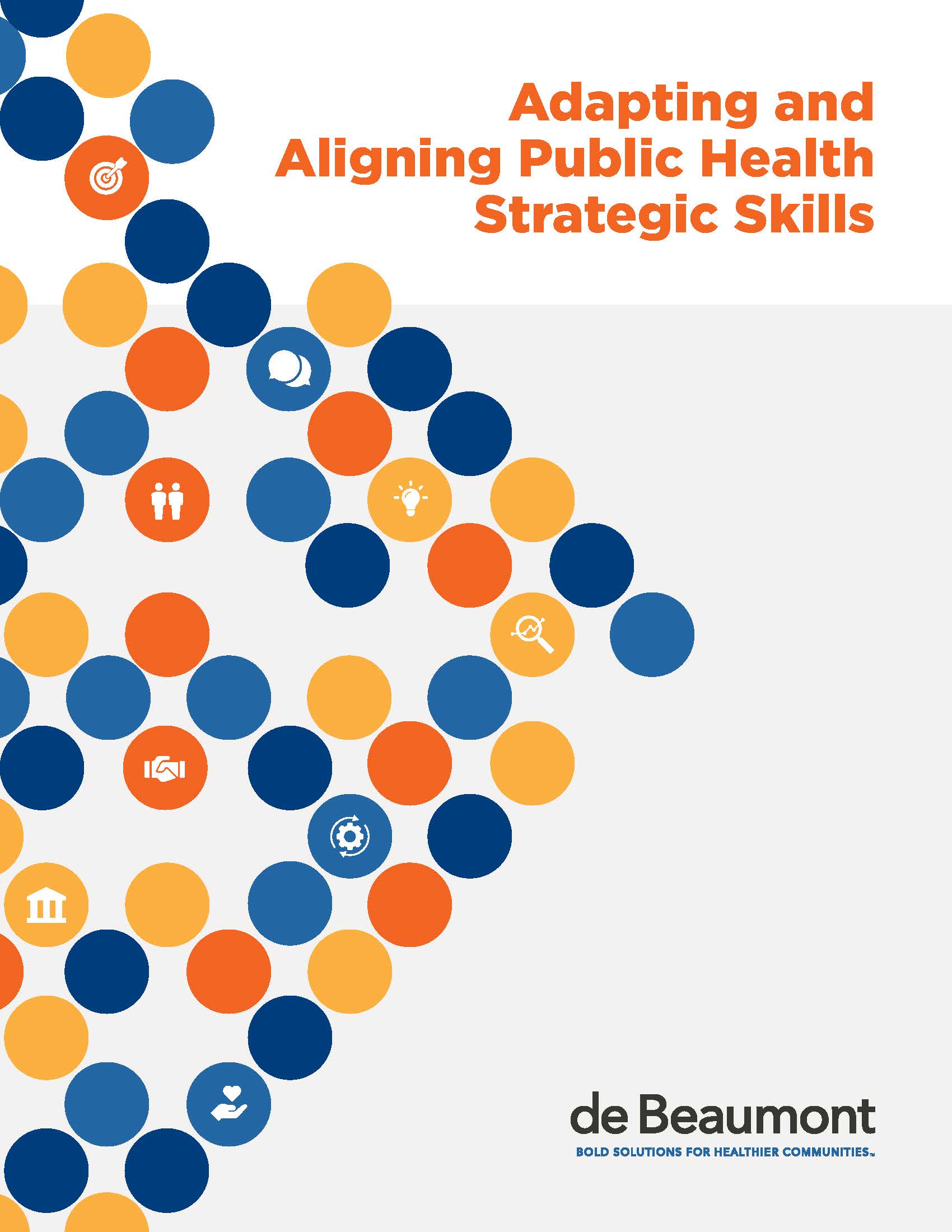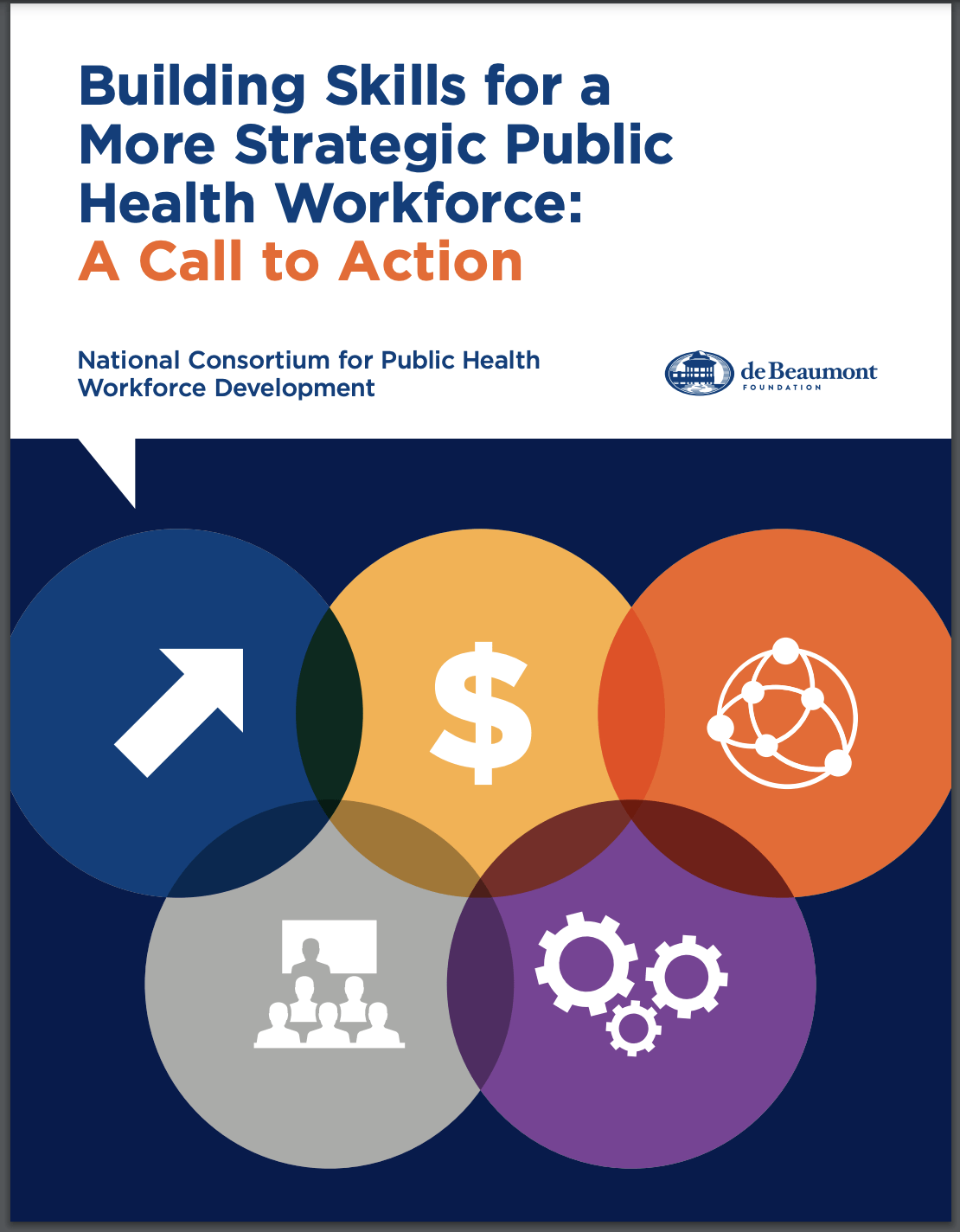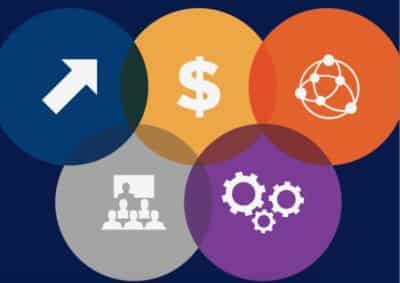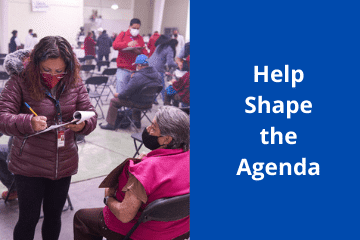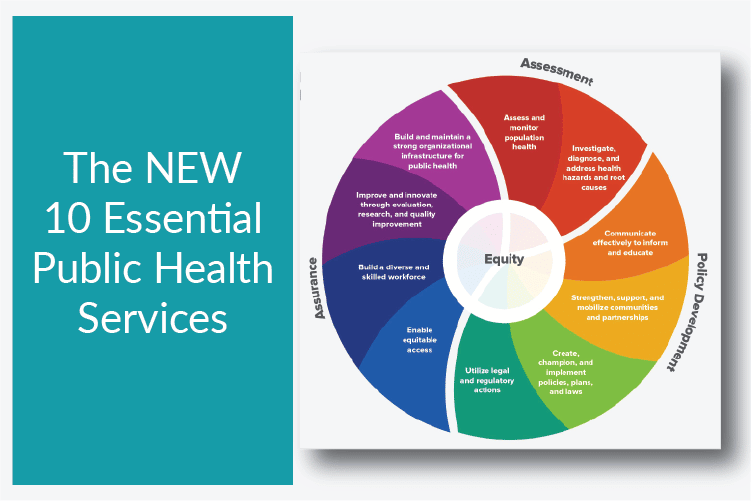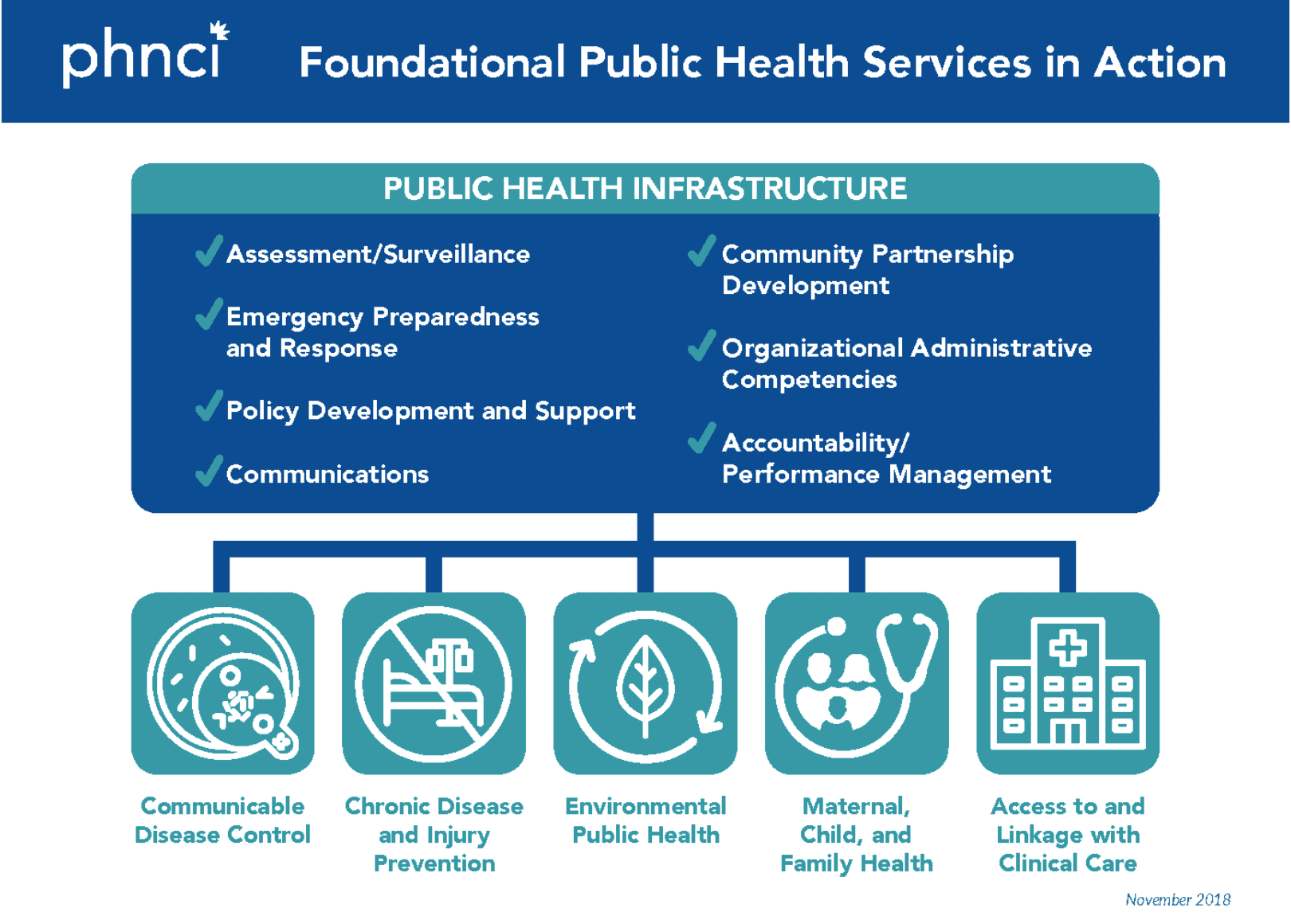In recent years, the public health workforce has faced immense challenges. The COVID-19 pandemic has proven how the health of the public is deeply connected to our economy, education system, social support systems, and much more. In combination with the protests against systemic racism during the summer of 2020, the pandemic has made abundantly clear that we will never achieve health equity without racial equity. Now more than ever, the public health workforce requires skills that span public health disciplines and leverage strong partnerships with other sectors.
Adapting and Aligning Public Health Strategic Skills
Since the National Consortium for Public Health Workforce Development released the Strategic Skills in 2017, the public health field and its work have evolved. Because the public health field needs a shared understanding of what its workforce must know and do, the report Adapting and Aligning Public Health Strategic Skills presents refreshed definitions for the Strategic Skills and a crosswalk of the new definitions with the field’s Core Competencies.
To address new challenges and changing priorities, the de Beaumont Foundation has worked to align the Strategic Skills with widely used public health assessments and competency sets. The renewed Strategic Skills address the new challenges and the constantly shifting focus of the workforce. Using the Strategic Skills framework as a basis for workforce development, all public health professionals working to advance the 10 Essential Public Health Services and Foundational Public Health Services, regardless of discipline, focus area, or supervisory level, can learn to think strategically and systematically, manage change and resources, communicate effectively, create action from data, engage with the communities they serve, influence policy, form cross-sector partnerships, and strive for justice, equity, diversity, and inclusion.
The public health system must drive change by prioritizing the Strategic Skills in workforce development, taking actionable steps to adopt the Strategic Skills framework throughout the field, and building on the achievements that have already been made. Together, we can foster a strong and strategic public health workforce that achieves the best possible health for all.
New Strategic Skills definitions:
An interactive process of partnership and dialogue that leads to the exchange of information and ideas with a variety of groups in order to influence behaviors, policies, and social norms. Crafting effective communication requires centering an audience’s values, environment, and priorities and utilizing an array of formats well received by the target audience. Effective communication is participatory in its nature and seeks to empower intended groups and communities to create longlasting and transformative change.
Advancing JEDI involves an ongoing, intentional effort to create an environment where everyone has a fair opportunity to thrive, enjoy good health, and wholly participate in a full range of life’s activities. Supporting JEDI calls for both personal accountability and collaborative group efforts to examine power structures, listen and act on the perspectives and voices of underrepresented/historically marginalized groups, and ensure that all people have real, meaningful access to necessary resources and support systems.
Encompasses collecting, interpreting, and leveraging data—including “big data”—to identify salient patterns, answer relevant questions, and make effective decisions. The insights generated during data analytics translate into tangible, real-world change and lead to informed action.
A process through which current and future resources (including finances, staff, individuals with technical or subject expertise, technology, equipment, and any other component integral to organizational or programmatic operations) are strategically and efficiently allocated and deployed to the degree appropriate to achieve organizational and systems-level success and minimize waste.
Involves bringing together two or more distinct fields—such as health care and transportation—to yield greater impact and results. Public health professionals skilled in these types of partnerships will be able to foster and sustain meaningful, long-term collaborations that combine a unique set of resources, experience, and knowledge to more effectively and efficiently address complex, multifaceted issues (e.g., the social determinants of health). Public health is expertly positioned to convene these partnerships and help focus their efforts through a public health lens.
A holistic and dynamic understanding of interrelated complex structures—such as public health and health care—as well as the ability to recognize those systems’ influences at multiple levels and use those insights to align resources to achieve goals. It involves designing interventions that help people see the overall structures, patterns, and cycles in systems and allows for the identification of solutions that simultaneously leverage improvement throughout the system.
Refers to an authentic, mutually beneficial, and collaborative process of working to address issues that affect the health and well-being of particular communities, which often involves prioritizing health equity. Community engagement exists on a spectrum; involves equitable distribution of decision-making power and a focus on community partnering and collaboration; and is rooted in trust and respect.
A process to guide individuals, organizations, and systems through the transition from a current state to a desired future state, with an emphasis on learning and resiliency at all levels. Public health professionals skilled in change management will be able to set an example, inspire a shared vision, challenge the status quo, manage uncertainty, and encourage strengths-based action while navigating ongoing challenges to successfully realize needed change.
Involves working to inform, influence, implement, and evaluate legislation strategies at federal, state, and local levels in order to leverage long-lasting systems changes to protect and improve the public’s health and well-being.
Additional Resources
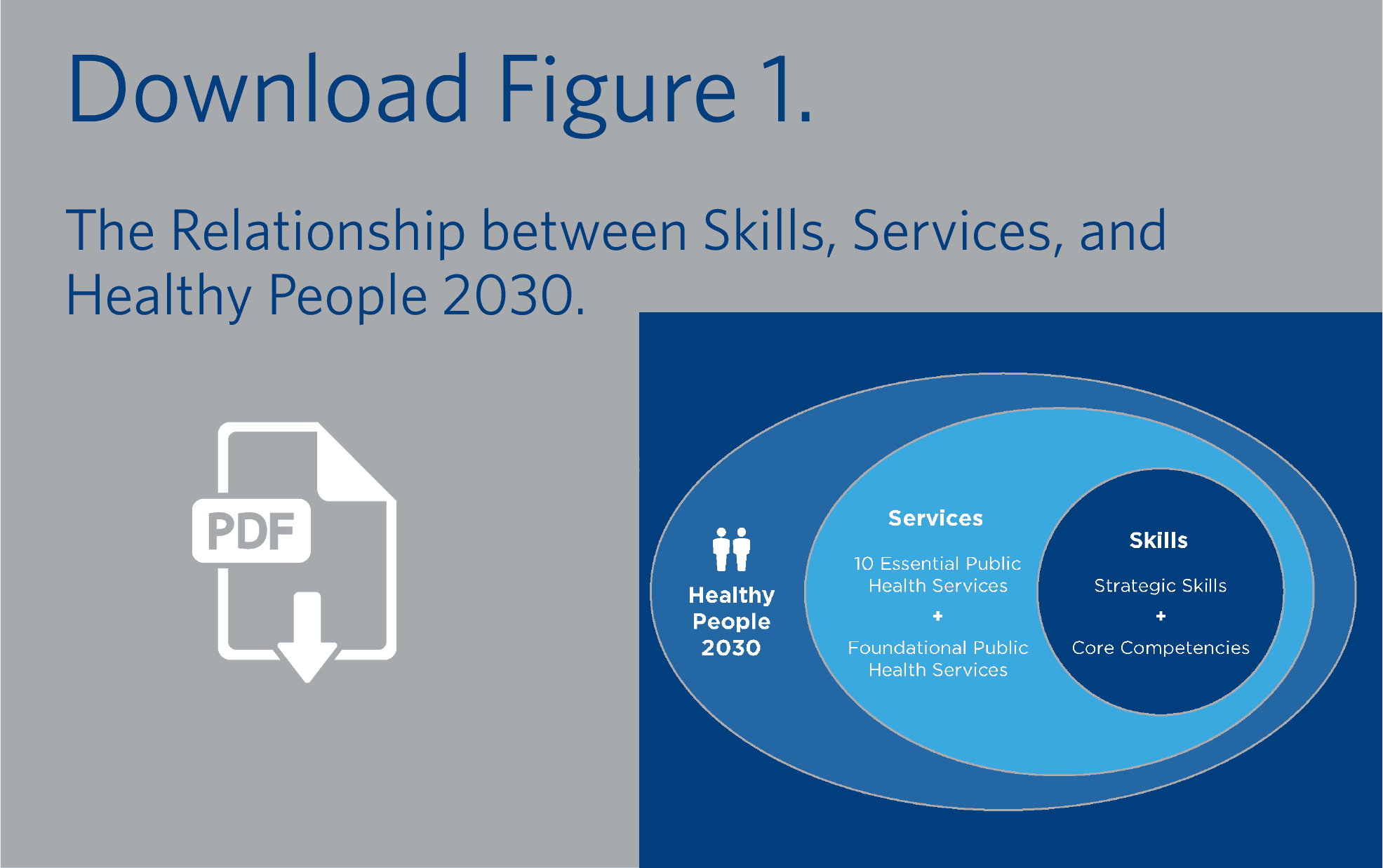
Source: de Beaumont Foundation. “Adapting and Aligning Public Health Strategic Skills,”. March 2021.
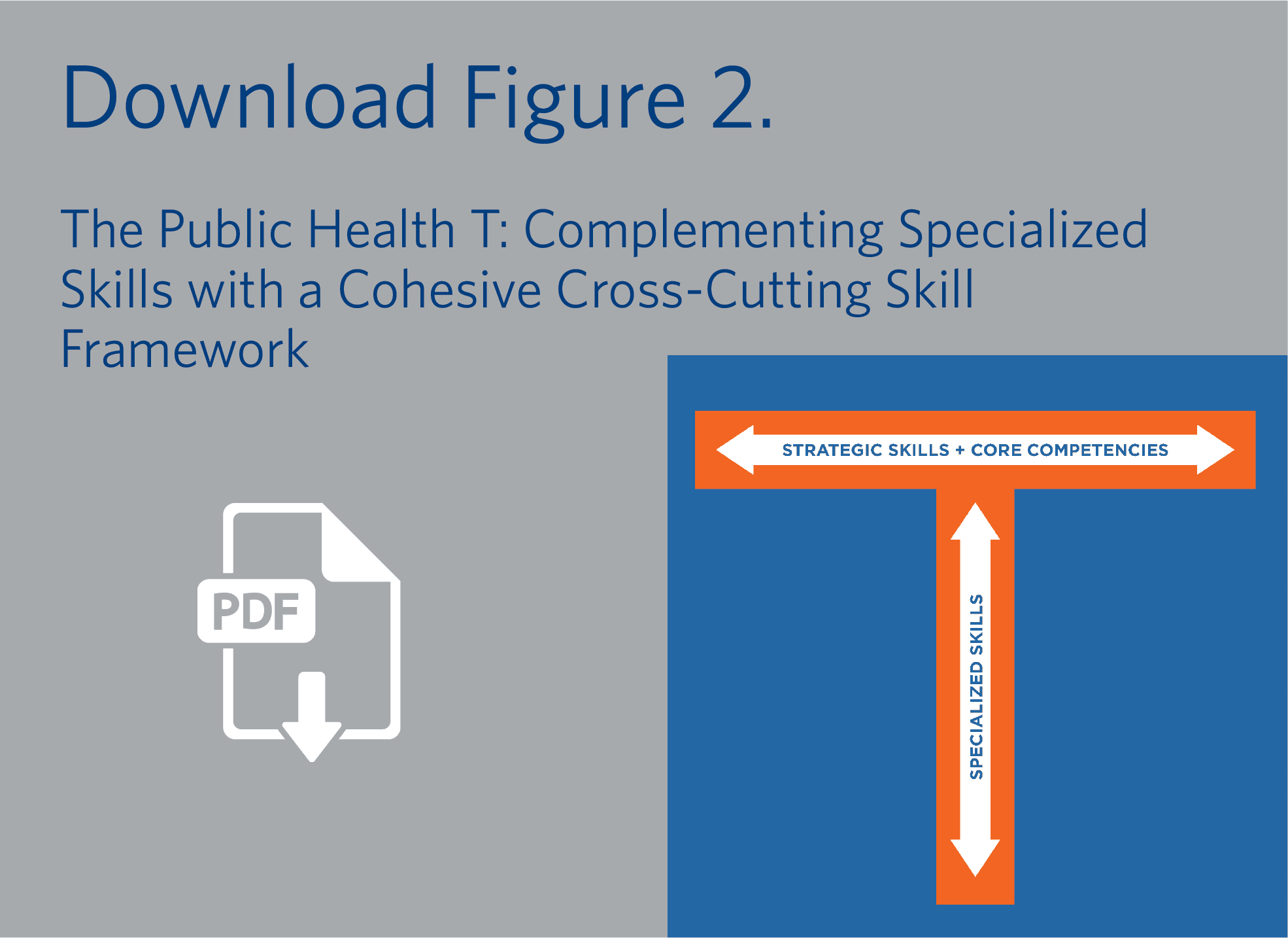
Source: de Beaumont Foundation. “Adapting and Aligning Public Health Strategic Skills,”. March 2021.
Building Skills for a More Strategic Health Workforce, 2017
State and local governmental public health agencies have long played a critical role in improving the nation’s health, but need to continually adapt in order to lead their communities. Changes within public health agencies (such as job losses, turnover, advancing technology, and changing patterns of disease) and in the broader economic, health care, and policy environments are converging to reshape the role of governmental public health. These changes reinforce the need for a strong public health workforce that can be strategic and work across sectors to address the social and economic factors that drive health. In 2017, the de Beaumont Foundation published Building Skills for a More Strategic Public Health Workforce: Call to Action, which offers guidance on strategic, system-wide approaches to public health workforce development at the federal, state, and local levels. This new report, Adapting and Aligning Public Health Strategic Skills is an updated version of the 2017 report.

